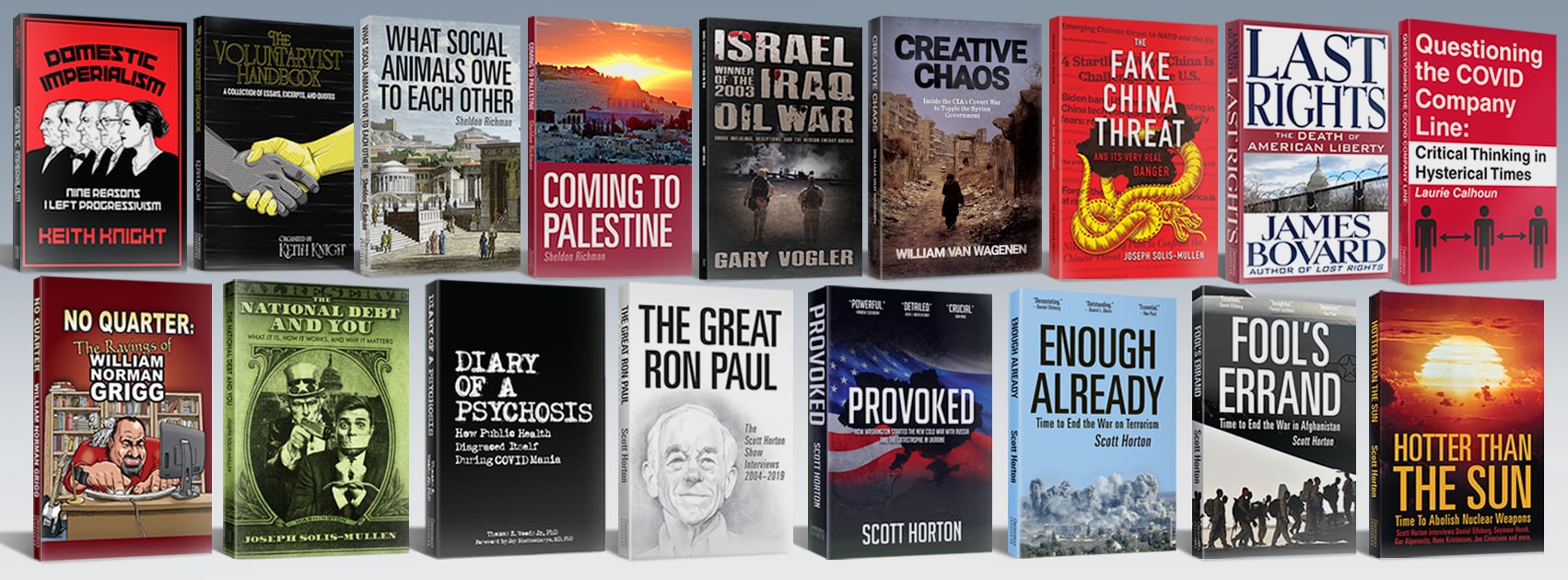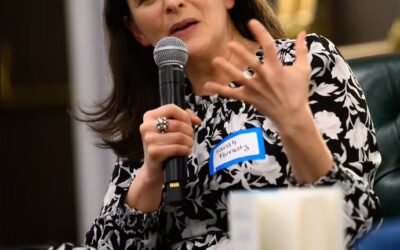Timothy Hsiao recently made the rather startling case that libertarians should support the War on Drugs by claiming that recreational drug use undermines a critical precondition for freedom, namely, the ability to think clearly and to choose wisely. Hsiao notes that:
Accordingly, since the government has a responsibility to protect personal freedom, it must also protect and promote a culture that is conducive to clear thinking and discourages impaired thinking. The government, therefore, has a responsibility to restrict activities that impair, destroy, or otherwise undermine clear thinking.
There are many types of libertarianism. They range from the strong version, which is grounded in the non-aggression principle and prohibits any coercion by government, to the weak or impaired version where government can use force to foster particular freedoms and activities. Hsiao’s argument obviously rests on a weak version of libertarianism.
The argument that alcohol and drugs alter our ability to think clearly and therefore need to be restricted is not new. In fact, it can likely be traced back thousands of years, and was a common argument in the modern American movement to prohibit alcohol during the 19th century and during the War on Drugs of the 20th century. Recall, for instance, the “Reefer Madness” hysteria of the 1930s, when the use of cannabis (marijuana) was said to cause insanity, violence, rape, and murder, and acts of superhuman strength.
The larger point here is that Hsiao’s use of libertarianism shows just how popular libertarian thinking has become. In fact, demographically speaking libertarianism and libertarian-conservativism seem to be the wave of the future. However, drug and alcohol prohibition is a policy usually connected to the ideology of progressivism and even fascism.
For the sake of argument, let us grant Professor Hsiao his own version of libertarianism. Let us also grant that alcohol, marijuana, cocaine, heroin and many other drugs impair clarity of thought, choice, and action. Finally, let us further grant that certain drugs are so powerful and addictive that they can take over individuals’ lives and lead to improper actions, violence, accidents, and overdose deaths.
The Opioid Crisis is a painful reminder of these abnormalities. Here we have thousands of Americans becoming new addicts and thousands dying from drug overdoses each month. Furthermore, the crisis involves “normal” Americans, who would never otherwise consider trying heroin, becoming heroin addicts and overdosing.
Professor Hsiao does not discuss this crisis, but surely it is the best evidence for his case that certain drug use impairs individuals in a way that undercuts their self-interest by short circuiting their ability to reason and act rationally. However, this crisis is mostly about the changes in pain prescription guidelines rather than prohibition.
Two Pragmatic Objections to the Drug War
The two objections that I wish to raise to his libertarian case for drug prohibition are pragmatic, not libertarian per se. In fact, I firmly believe, like Professor Hsiao, that society must somehow impose itself on individuals to induce improved clarity of thought and individual responsibility.
The first objection raises the question of whether or not drug prohibition works to achieve its goal. This objection is not a cost-benefit issue, so that achieving even a small fraction of the goal at a high cost is enough to successfully counter this objection.
In my second objection, I ask the questions: What is the general reason why we have such a large problem with alcohol and drugs and what is the best response for dealing with these problems?
Drug Prohibition Does Not Work
Alcohol and drug prohibition creates more problems than it solves. During alcohol prohibition, circa 1920–1933, beer and wine were virtually non-existent on the black market while spirits of very high potency and high levels of impurities flooded the market. Crime and corruption were rampant. The murder rate nearly doubled. Bribery of public officials was endemic and respect for the rule of law plummeted. It is true that teetotalers and many moderate drinkers did obey the law. However, they were not part of the problem alcohol prohibition was designed to address.
The same is similarly true of the War on Drugs. The Reefer Madness hysteria is now widely considered hokey propaganda, much like the more recent “This is your brain on drugs” campaign. When President Nixon started his War on Drugs, the government measurement of the potency of cannabis was a mere 0.4%. Twelve years later it was ten times as high. The potency has continued to increase and the reason is prohibition itself, not consumer demand. The Iron Law of Prohibition states that prohibition increases drug potency and makes the product more dangerous.
That does not matter much with cannabis because consumers can always use a lower quantity. However, with so much legal pressure on cannabis, drug cartels have increasingly turned to cocaine, heroin, and methamphetamine as the drugs of their choice. The potency of these drugs makes it easier to smuggle a far greater number of doses in a given container compared to bulky cannabis.
The Gateway Theory of drugs has been thoroughly discredited, but the history of the War on Drugs has mimicked the theory because over time law enforcement effort and legal penalties have increased and consequently drugs have become more potent and dangerous to consume.
The War on Drugs has also spread crime, corruption, and violence. The US has the world’s largest prisoner population and highest rate of incarceration. The most salient factor in this is the War on Drugs. America is also home to the largest gang population in the world, largely financed by selling illegal drugs. Our War on Drugs has caused failed states in Central America and is a leading vehicle for financing terrorism.
Why Drug Abuse?
To help solve a problem, it helps to know what is causing the problem. Inner city minorities, war veterans, people with mental illnesses and young males have much higher rates of alcohol and illegal drug use and abuse. What all these groups have in common is that they tend to be marginalized in society and to experience a general condition of hopelessness and anxiety for their future.
We can also see this marginalization and hopelessness in the general population. In the US there are haves and have nots. As an economist I see the group of the “haves” as having a special advantage through government. Think of all the professions that require a government license rather than a good reputation or some form of professional certification to succeed. Think of all the government contractors. Think of all the people employed through government and unions. All these people hold a privileged position in society. They generally work less for greater pay and fringe benefits and have greater job security compared to the “have nots” or unprivileged population. These advantages are typically secured through access to government backing or at least tacit appeal to government coercion.
The unprivileged population has no such advantages. They participate in tight labor markets that do not have restrictions on entry. Therefore, they have a hard time getting and keeping jobs which ultimately pay less and have fewer fringe benefits compared to the privileged groups. They also have a far lower level of job security and rates of employment. Not surprisingly, a great deal of alcohol and illegal drug use and abuse occurs in this group, which can keep the unprivileged people stuck in their dead-end jobs. Alcohol and drugs help them cope with their marginalization and hopelessness. Unlike the privileged, this group also is far less likely to have health insurance which might pay for addiction treatment services. It is government interference, and not drugs themselves, which is the indispensable element in this cycle of despair.
An important solution to this situation would therefore be to eliminate government privileges and allow everyone to compete on a level playing field. Attacking drugs is bound to fail to alleviate societal problems, because the drugs are not the root cause of those problems. If Professor Hsiao’s recommendations were followed, one could anticipate the government becoming even more powerful, which would actually harm, and not help, the very people whom Professer Hsiao seeks to help.
Just as Professor Hsiao’s arguments are not novel, neither are mine. Even Milton Friedman, who structured his entire body of thought on a weak version of libertarianism, openly opposed the War on Drugs for over 34 years and he did so for the pragmatic reason that prohibition did not work, but the marketplace did. Moving from prohibition to legalization does not just make the drugs cheaper; it changes everything for the better.















